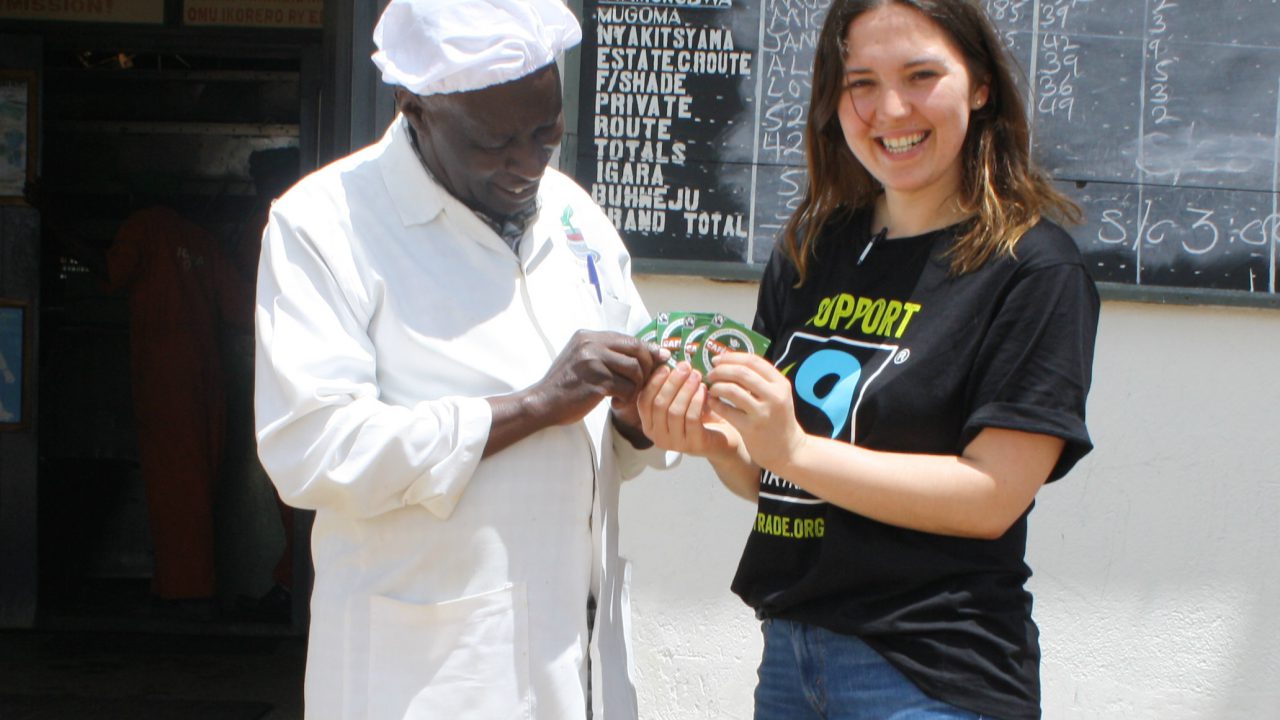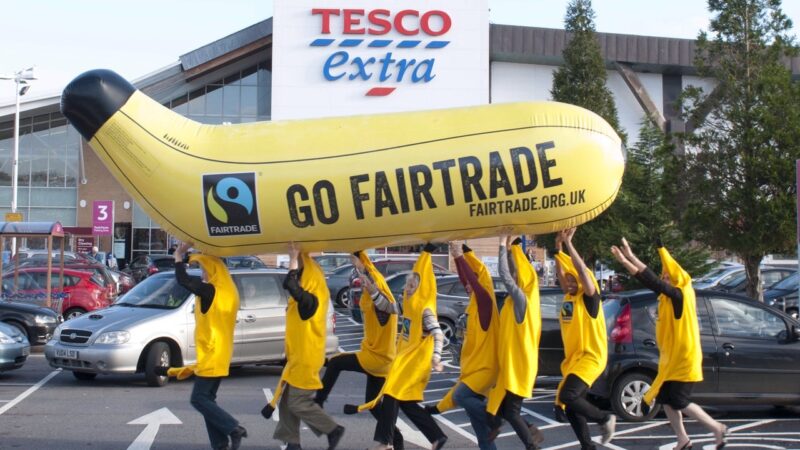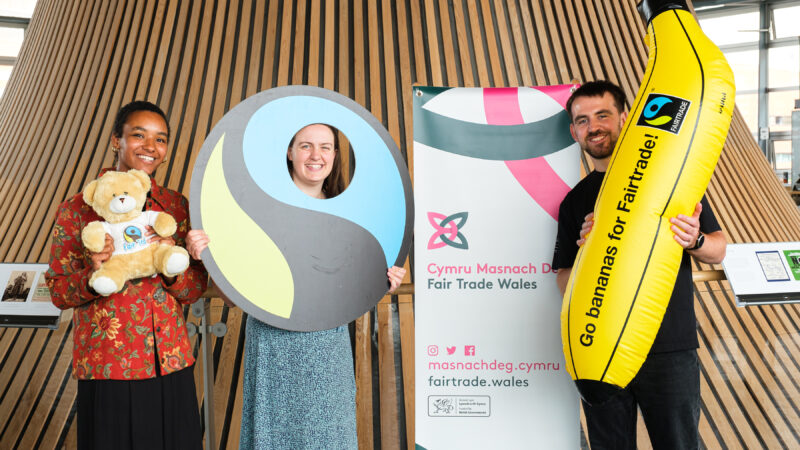Ffion’s Fairtrade Journey: Dear Dorothy
March 30, 2017
Dear Dorothy,
You share the same name as my grandmother, and a similar life: rearing children and working the land. But the similarities don’t root much deeper than that. She had equal rights to the land. Equal rights to the income. Law protected my grandma if her husband was to pass away. But your situation was not so equal. The pathological effects of this burden were evident. Your joyous expressions when we celebrated – as a result of Fairtrade – that you now own your own piece of land were empowering. A moment captured – and one that I choose as the cover page for my journey in East Africa.
Gender inequality is ubiquitous in agriculture. Women produce approximately 80% of the world’s food – an approximate because of the scarcity of gender aggregated data in agriculture. Female farmers across the globe continue to face relentless discrimination and barriers. Kath Shaw, a Welsh deer farmer that we met on our tour during Fairtrade Fortnight 2016 said; “the issues that women farmers are facing in Uganda are similar to the prejudice I have had to deal with as a female farmer in the UK.” In the developing world in particular, you are the backbone of the economy but yet you receive but a fraction of credits, training, inputs and technologies (seeds and fertilizers) and as said, land.
With thanks to Finlays Kenya, pioneering in their efforts to see multi-national companies forge working partnerships with smallholder farmers that it was you stood in front of me a landowner. Their work with smallholder farmers such as yourself and your husband Edward in the surrounding hills of Kericho means that all their ‘outgrowers’ are Fairtrade certified, and so your families, communities and local environment benefit.
Gender equality is now a key principle of Fairtrade. It aims to empower women so they can step up into roles that have been traditionally denied them. Investing in rural women like you is known to be key to food security, increases productivity and improves livelihoods. Achieving gender equality in agriculture means empowering all, to build communities where everybody feels equally valued.
So Dorothy, thank you. For sharing your story – and for attempting to teach me how to pluck tea! For allowing me to see first hand that Fairtrade is an important player in the fight against gender inequality. For you, for my grandma and women in agriculture across the world battling discrimination, unfair laws and antagonising cultural norms: here’s to change! Here’s to you Dorothy!
Best Wishes,
Ffion.

